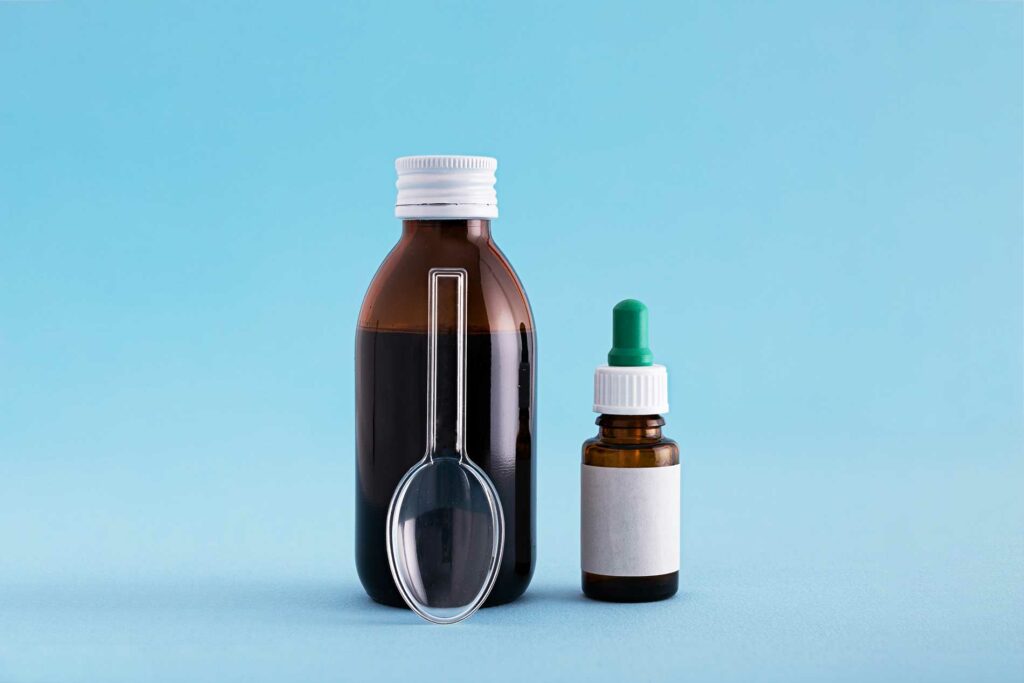Sinus Infection Treatment in Omaha
What is a sinus infection?
Also known as “sinusitis,” a sinus infection occurs when a person’s sinuses, the hollow spaces in the facial bones that are used by the respiratory system, become swollen and inflamed. When these spaces become inflamed, it makes it difficult for the sinuses to drain properly. This results in a buildup of mucus that causes frustrating congestion, pressure, and even pain. Most sinus infections are viral in nature and will resolve on their own without antibiotics.
Book an Appointment
Do you have symptoms of a sinus infection? If so, it’s time to book an appointment with your friendly provider here at Nebraska Home Pediatrics & Parents.

Are sinus infections contagious?
No, a sinus infection itself is not contagious. This is because sinus infections are typically the result of a viral infection. The swollen sinuses, pain, and pressure of a sinus infection is not something you can pass onto someone else, per se. That being said, the illness that caused the sinus infection is contagious. So, for example, if you develop a sinus infection from a cold, you can spread the cold to others, but the symptoms of a sinus infection specifically cannot be spread.
Types of Sinusitis (Acute, Subacute, Chronic, and Recurrent)
Not all cases of sinusitis are the same, and it’s important to know the difference between the different types, so that you can take appropriate action.
- Acute Sinusitis: Acute sinusitis is most likely to be caused by the common cold, and symptoms tend to last up to 4 weeks.
- Subacute Sinusitis: Subacute sinusitis lasts between 4 and 12 weeks, and symptoms can be more intense than acute sinusitis.
- Chronic Sinusitis: Chronic sinusitis symptoms last for 12 weeks or more. In these cases, the cause is usually bacteria, rather than a virus.
- Recurrent Sinusitis: Recurrent sinusitis refers to cases in which symptoms recur 4 or more times in 1 year. Typically, those symptoms last for 2 weeks or less during each recurrence.
Sinus Infection Causes
Acute and subacute sinus infections develop after someone contracts a viral infection that affects their respiratory systems. Allergies have also been known to cause sinus infections. The causes of chronic and recurrent sinusitis are not as straightforward. Some believe that certain risk factors like dental infections, fungal infections, and continuous exposure to cigarette smokes could be to blame.

Sinus Infection Symptoms
Symptoms of sinusitis may vary, but there are some telltale signs that your cold has grown into a case of bacterial sinusitis. The main bacterial sinus infection symptoms are:
- A runny nose with thick, green or yellowish mucus, and postnasal drip (drainage down the back of the throat) with high fever for 3 days or more; or a total of 10-14 days or more
- Swelling and pain in the sinus areas — around the nose, forehead, cheeks, and eyes
- Congestion, or “stuffy” nose
While these symptoms are the most well-known sinus infection symptoms, you can also experience:
- Changes in your sense of smell
- Headache
- Ear pressure
- Bad breath
- Teeth pain
- Fever
- Fatigue
An appointment with one of our providers will help distinguish between a viral sinus infection and a bacterial sinus infection based on current evidence-based guidelines.
Diagnosis of Sinus Infections
Typically, a sinus infection can be diagnosed through an in-person visit, in which your provider will discuss your symptoms and perform an exam. Your provider will ask you how long you’ve had symptoms, will look inside your nose and will check for tenderness in your face to help them with their diagnosis.
For chronic and recurrent sinusitis, more invasive techniques might be used in subsequent visits to rule out other underlying health issues.
Sinus Infection Treatment OptionsIn most cases, sinus infections go away on their own, but that doesn’t make them any less uncomfortable or frustrating! There are some options available to manage symptoms while you wait for the infection to resolve itself. These include:
- Decongestants like Sudafed (pseudoephedrine) *Do NOT take if you have high blood pressure or you are breastfeeding*
- Saline Nasal Sprays or rinses, like a NetiPot or squeeze bottle
- Nasal Corticosteroids,like Flonase or Nasocort
- Pain Relievers
- Allergy Medicines (if sinusitis is caused by allergies)


Home Remedies and Management
There are some tried-and-true home remedies that are well-known to help ease symptoms of acute sinusitis. These methods are inexpensive, relatively accessible, and very low-risk. They include:
- Rest
- Hydration
- Warm, moist air from hot showers or a bowl of hot water
- Eating nutritious foods
When to See a Medical Provider
Though sinus infections are typically illnesses that go away on their own, there is a point at which it’s time to visit your provider. If your symptoms last longer than 10-14 days, or if they seem to suddenly get worse after seemingly getting better, it’s a good time to call and book an appointment with us here at Nebraska Home Pediatrics & Parents. If you have a fever that lasts over three days, or if you have a history of repeated sinus infections, it’s definitely time to come in for an exam.
If you notice pain and redness around your eyes, have a high fever, a stiff neck, or mental and vision changes, you need to be seen by a provider as soon as possible.
Prevention Tips
In order to prevent a sinus infection, you must first look to prevent the viral infections that cause them. This involves regular cold prevention techniques like thorough hand washing, avoiding touching your face, and keeping your distance as best you can from people during cold and flu season. We know, however, that prevention doesn’t work 100% of the time, and once you’ve gotten a cold, you can do some of the following things to try to stave off acute bacterial sinusitis:
- Avoid smoke and other respiratory irritants
- Saline Nasal Sprays or Rinses
- Continue any allergy regimens you regularly maintain
- Avoid antibiotics if they aren’t absolutely necessary

Schedule an appointment for sinus infection symptoms today!
At Nebraska Home Pediatrics & Parents, we know that a sinus infection can make life miserable. If you’ve read through the symptoms on this page and are still worried that you or someone in your family needs to be seen by a medical provider for a bacterial sinusitis diagnosis, please call us today and schedule an appointment.